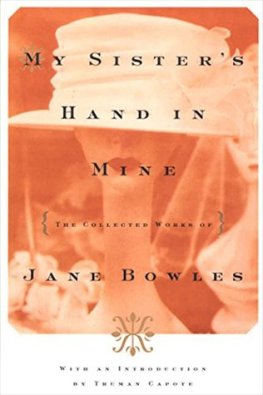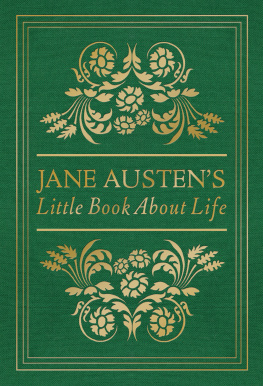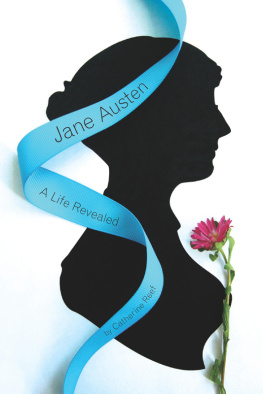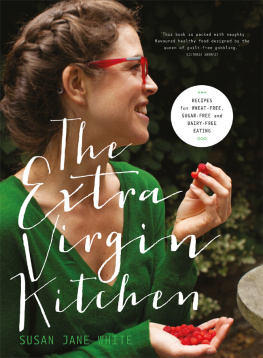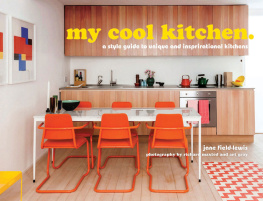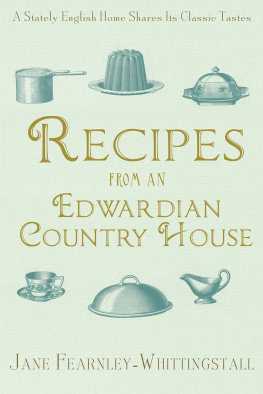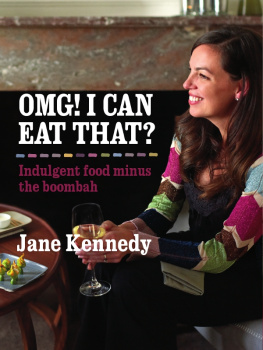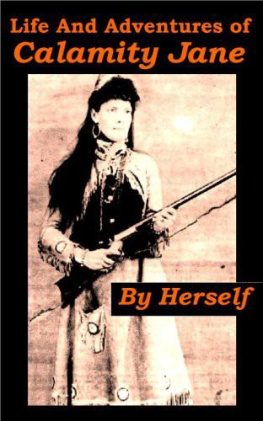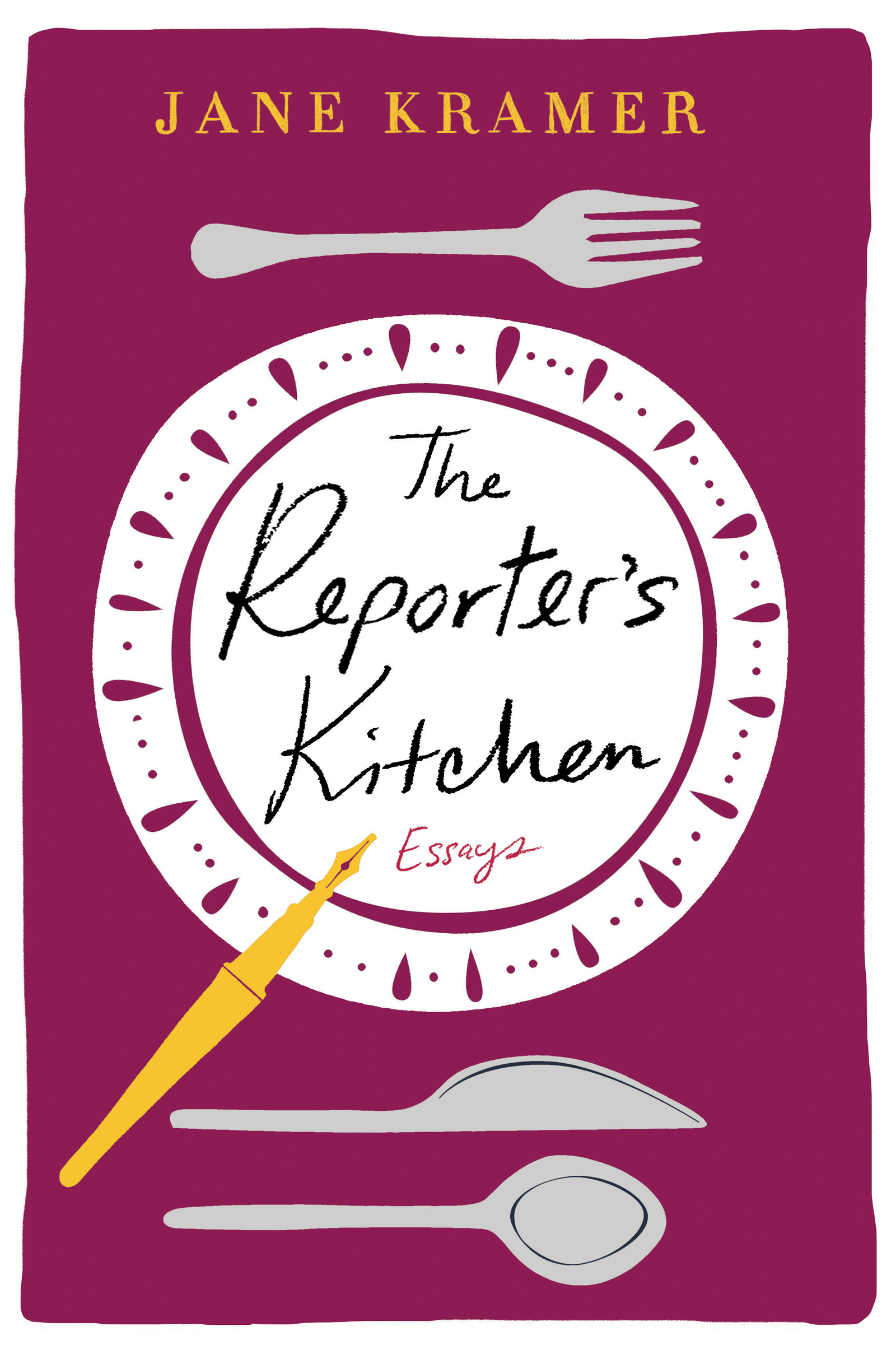Contents
Guide
Pagebreaks of the print version

The author and publisher have provided this e-book to you for your personal use only. You may not make this e-book publicly available in any way. Copyright infringement is against the law. If you believe the copy of this e-book you are reading infringes on the authors copyright, please notify the publisher at: us.macmillanusa.com/piracy.
For Wicky
Right now Im trying to decide what to cook for dinner. Yesterday I finished revising the last chapter of this collection, and whenever I finish a bookor a long piece of reporting or even a tough reviewI take a few days off and celebrate by getting reacquainted with my kitchen, my husband, my family, and my dog. This is not to say that Ive neglected any of them, and certainly not my kitchen, only that, as my daughter, Aleksandra, complained when she was a child in Paris, still answering to her baby nickname, Wicky, Mommy, youre here, but youre not here . She meant, of course, that wherever we were, a good part of my head was still at my desk, locked in a battle with words, a battle I occasionally won by plunging into a magic circle of concentration, which in those days was bounded by a pack of Marlboro Lights on one side of my computer and a bag of chili taco chips on the other, with me in easy reach of them all. The cigarettes are long gone from my life, the taco chips, too. And mirabile dictu, Aleksandra Crapanzano grew up to become a writer herself. A screenwriter and a food writer. A multitasker, as her generation of brainy, beautiful Brooklyn women call themselves (I call them jugglers), always on deadline with a screenplay, plus a weekly food column in The Wall Street Journal and a second cookbook in the works, not to mention materfamilias to a household, with a husband and an eleven-year-old boy of her own, and even a dog like the Bouvier des Flanders she got for Christmas, in Paris, when she was her sons age. More to the point, we have finally made peace in the kitchenwhere she had glowered through an adolescence of scullery (I prefer sous-chef) servitude to a mother referred to in her stove mode as the Frher or on the good days, merely Sergeant Kramer. I knew she was trying to outcook me, which is to say outclass me, in my ownwell, ourkitchen, and to suggest that we were anything less than fiercely territorial about our rights at the stove would be, pace Kellyanne Conway, an alternative fact.
Wicky bided her time. She was thirteen when the moment came. I was stuck in Germany on a story, my plane canceled, and, without a word to her father, she took over the kitchen and went to work preparing an exceedingly elaborate meal for him and the two friends from Stockbridge whom Id invited to dinner, thinking Id be back. By all reports, he came home from work ready to make his excuses and order in, only to discover the dining room table set with our best china and wedding silver, and our daughter in the kitchen, macerating mangoes and strawberries, la Marcella Hazan, in an exceedingly pricey bottle of Sauternes that she had talked our local wine store into delivering by calling up and pretending to be me. There was an asparagus soup from Simone Becks Simcas Cuisine , with tarragon simmered in white wine, waiting on the stove; a salad of Bibb lettuce in a champagne vinegar dressing on the counter; and in the oven, a roulade of chicken from an old copy of Gourmet a truly complex dish involving boneless chicken pounded thin and rolled around alternating layers of spinach and bell pepper pure to produce, when sliced, a beautiful swirl of white, red, and green. Thus, on my return from Germany, we entered the second phase of our competitive cooking life. Call it the wary collaborative phase. Or Venus and Serena.
It didnt take long for Wicky to morph into Aleksandra or to claim parity in the kitchen. For one thing, she baked. She loved baking and was never daunted by the timing and precision involved in making a perfect cake or a flaky, buttery crust that didnt stick to some impossibly fluted baking dish, whereas I have only recently mastered the task of rolling a sheet of frozen puff pastry for a potpie, and my go-to cakes tend to be Ballymaloes Tunisian orange cake, where bread crumbs and ground almonds are as close as you get to flour, or the River Cafs pistachio loaf cake, where the addition of ground pistachios obviates even the need for crumbs. Whats more, while my daughter can often be right up there on what you could call the anxiety meter (Mommy, remember to phone as soon as you arrive, she says whenever her father and I take a trip, meaning anything from the nine-and-a-half-hour flight from Kennedy to Fiumicino to twenty-five minutes on the F and C trains from Boerum Hill to Central Park West), she is remarkably serene in the kitchen, where my anxiety spikes but hers dissolves into a kind of blissful and commanding competence that can always stretch a meal to include anyone who happens to call on a Sunday morning when she is at the stove, with eggs scrambling on one burner, pancakes on another, bacon on a third, and therefore a couple of burners still available for a pot or pan. I have been to known to panic at the thought of just a few unexpected guests, except in Italy in the summer, where my hospitality is relative to the capacity of my pasta potsand mine are big.
There is a deep pleasure in seeing your child sneak up behind you, match you, and stride right past you, the way my daughter has. As anyone who reads this book will learn, my mother couldnt cook and her mother couldnt, either. In those days, there was no glamour in cooking if you didnt have to, especially in New England, where the idea of luscious was close enough to lust to be far more shocking than inspiring. It amuses me now to see Providencewhere generations of my mothers family were born and raised on what was known generically (whoever you were) as Protestant foodreferred to as a hot culinary destination. But if its true that certain giftscooking, gardening, music, to name a fewtend to skip a generation, then it stands to reason that if they skip two, the next two generations get to make up for it. My daughter and I are doing that now. We cook together on holidays and have come to terms on the subject of who does what best. She brines and roasts the crispest, juiciest, most tender Thanksgiving turkey I have ever eaten, the most ambrosial cranberry sauce and pies; I am the secret twelve-ingredient cornbread stuffing chef, and, I have to admit, produce a delicious bones-to-bourbon gravy. On Christmas, the baby Brussels sprouts with shallots, pancetta, and balsamic vinegar and, clearly, the bche de Nol are hers to make. The Yorkshire pudding, parsnip pure, and rib roast with horseradish sauce are mine. We have not done battle in the kitchen for years. She still calls me Mommy. Her father and I still call her Wicky. Her husband (and friends and colleagues) call her Aleksandra. Her son calls her Mommy, Mom, Mother, Aleksandra, Wicky, or Woman, depending on the message he wants to send.
This book is for her, with love and pride. As for dinner tonight, I am still deciding what to make.
AUGUST 2002
The kitchen where Im making dinner is a New York kitchen. Nice light, way too small, nowhere to put anything unless the stove goes. My stove is huge, but it will never go. My stove is where my head clears, my impressions settle, my reporters life gets folded into my life, and whatever Ive just learned, or think Ive learnedwhatever it was, out there in the world, that had seemed so different and surprisingbubbles away in the very small pot of what I think I know and, if Im lucky, produces something like perspective. A few years ago, I had a chance to interview Brenda Milner, the neuropsychologist who helped trace the process by which the brain turns information into memory, and memory into the particular consciousness called a life, or, you could say, into the signature of the person. Professor Milner was nearly eighty when I met her, in Montreal, at the neurological institute at McGill University, where shed worked for close to fifty years, and one of the things we talked about was how some people, even at her great age, persist in seeing memory the way children doas a cupboard or a drawer or a box of treasures underneath the bed, a box that gets full and has to be cleaned out every now and then to make room for the new treasures they collect. Professor Milner wasnt one of those people, but I am. The memory I see is a kind of kitchen, where the thoughts and characters I bring home go straight into a stockpot on my big stove, reducing old flavors, distilling new ones, making a soup that never tastes the same as it did the day before, and feeds the voice that, for better or worse, is me writing, and not some woman from another kitchen.


